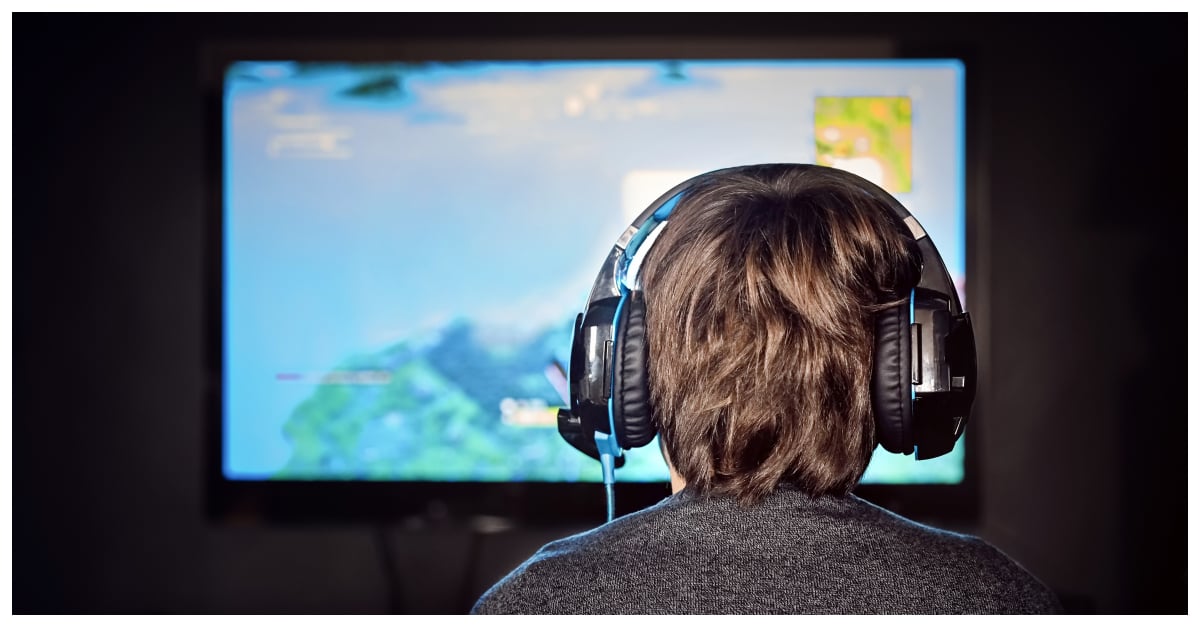
Kids with certain types of attention deficit hyperactivity disorder can now be prescribed a video game as treatment. To some, it may sound counterintuitive, but the FDA just approved the new video game, called EndeavorRx, aimed at kids between the ages of 8 and 12 with certain types of ADHD.
The video game isn't a cure-all, of course, and would be used alongside other treatments, but it's certainly a sign of the times. Essentially, the game is a kind of behavior therapy. And for parents who don't want to medicate their kids for their attentional differences, it seems like a really interesting option.
"The EndeavorRx device offers a non-drug option for improving symptoms associated with ADHD in children and is an important example of the growing field of digital therapy and digital therapeutics," said Dr. Jeffrey Shuren, director of the FDA's Center for Devices and Radiological Health, in a press release.
So many kids have learning disorders or differences. It is estimated that about 11 million in the US have ADHD. That's a huge number! But not all parents are willing to medicate their children, especially because many of the kids diagnosed with ADHD are rather young. While many doctors won't diagnose kids until they are 4, some reports say that kids as young as 2 are routinely diagnosed each year.
There are a lot of different ways to treat ADHD. Some parents opt to medicate their kids with prescription drugs like Adderall, Ritalin, or Concerta. But prescription drugs are not a good fit for everyone. In fact, some kids don't like the way those drugs make them feel. They can also be highly addictive.
The new treatment was reviewed in five clinical studies that included more than 600 children. Some negative effects were reported, like frustration, headache, dizziness, emotional reaction, and aggression. However, there were no "serious" adverse effects reported. It should also be noted that several of those "reactions" are also characteristics of ADHD. Many kids with the disorder have lower impulse control and difficulty with frustration tolerance.
While playing the game, kids steer an avatar through a course. They go through different obstacles, collecting targets. As they collect targets, they earn rewards. It's as simple as that! The game teaches important skills that are super helpful for kids with ADHD but can be more difficult to learn in more traditional ways.
The company that created the game, Akili Interactive, said that children should interact with the game for about 30 minutes per day, five days a week over the course of a one-month treatment cycle. The company also said that the game has been shown to improve attention function for those kids. Better yet, if they're having fun while playing, it won't really feel like a challenge to get the kids to play the game and get their daily treatment.
There are so many mixed ideas about how to treat kids with attentional differences, if at all. While traditional schooling makes having struggles with attention incredibly difficult, there are tons of different schools of thought about attentional differences. More artistic individuals—like musicians, writers, and other creatives—often have ADHD but don't view it as a negative. In fact, many people find that their "differences" make them more skilled in other ways, therefore treating it in a traditional sense isn't appealing.
Likewise, while prescription medication can be extremely helpful for certain people, the widespread use of certain drugs in children is controversial. Some people feel like those drugs alter their kids' own interests and personalities too much. Starting those medications at younger and younger ages has become more widely accepted. But some experts believe that as a society, we are overmedicating younger and younger children with attentional differences and that it may be causing them more harm than good.
So while video games might be controversial in different ways, it's certainly a less-invasive option. Not to mention, the recommended dosage is pretty moderate. While we have long known that video games can provide some benefits to different kinds of learners, it will be so interesting to see how this treatment is embraced. Where we go from here in terms of how we think about treating and managing learning and attention disorders in kids remains to be seen, but this feels like a positive step for kids who struggle to focus.




